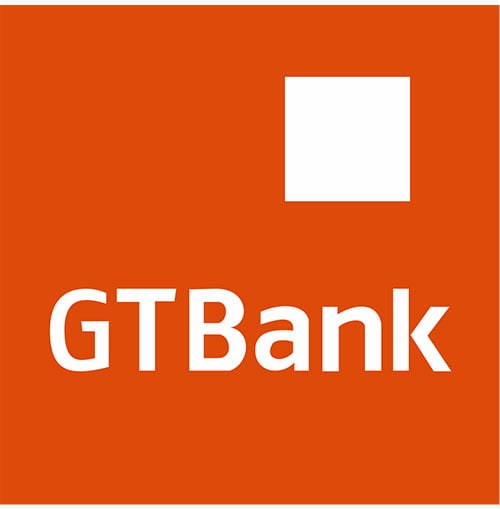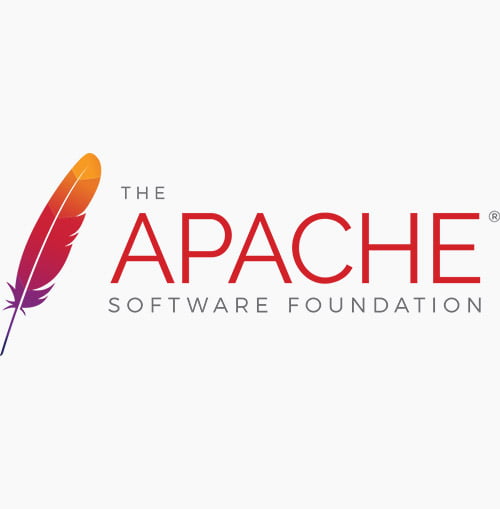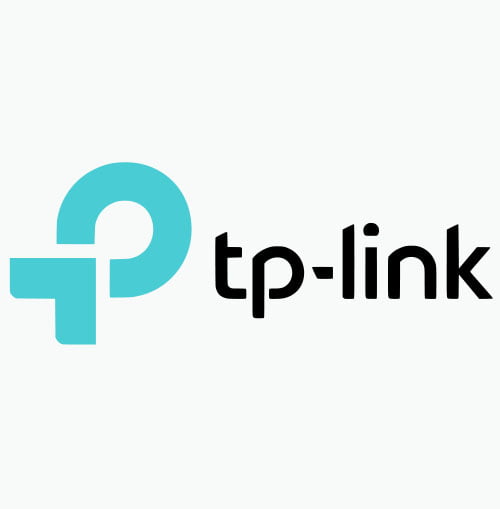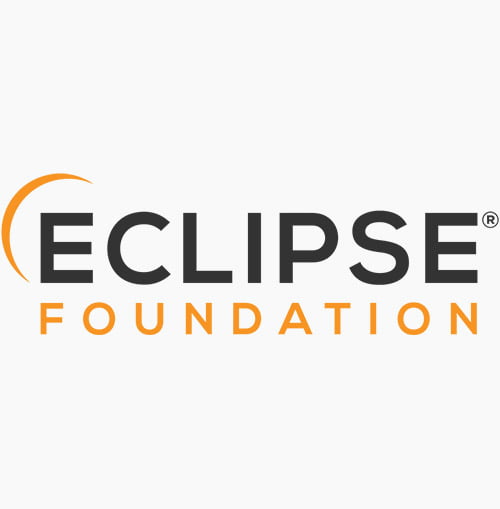Ict workshop training and internships in kampala shape your tech future uganda
Isazeni Solutions is one of the emerging tech companies in Kampala, Uganda, that offers training, workshops, and internships geared towards helping individuals shape their tech future. Their programs are designed to equip participants with practical ICT skills to meet the growing demand for skilled tech professionals in Uganda and across Africa.

Here’s an overview of what you can expect from ICT workshops, training, and internship opportunities at Isazeni Solutions in Kampala:
- ICT Workshops and Training Programs at Isazeni Solutions
Isazeni Solutions offers a variety of ICT workshops and training sessions aimed at individuals looking to break into the tech industry or enhance their existing skills. These programs typically cover:
Key Areas of Training:
- Software Development & Programming:
- Learn various programming languages like Python, JavaScript, C#, and Java.
- Training in web development (HTML, CSS, JavaScript, front-end frameworks like React or Angular).
- Mobile app development for Android and iOS.
- Data Science & Analytics:
- Training on how to work with data using tools like Python, R, and SQL.
- Machine learning basics and how to apply data-driven insights to business solutions.
- Data visualization and the use of tools like Tableau and Power BI.
- Cybersecurity:
- Understanding cybersecurity principles, network security, and ethical hacking.
- Learning about protecting systems from threats and securing personal data.
- Cloud Computing:
- Introduction to cloud platforms such as AWS, Microsoft Azure, and Google Cloud.
- Training in cloud architecture, DevOps, and managing cloud services.
- Digital Marketing:
- Workshops on digital marketing strategies, SEO, SEM, and social media marketing.
- Using data analytics to drive digital marketing success.
- Project Management & Agile Methodologies:
- Training in Agile, Scrum, and Kanban project management methodologies.
- Tools like Jira and Trello to manage tech projects.
These workshops are designed to be hands-on, with real-world case studies and examples, allowing participants to gain practical experience in the tech field.
- Internships at Isazeni Solutions
Isazeni Solutions offers internship programs for young people interested in gaining hands-on experience in the tech industry. These internships provide an excellent opportunity for students and recent graduates to apply the skills they’ve learned in a professional setting and build their resumes. Key features of the internship program include:
Internship Opportunities:
- Software Development Internships:
- Interns will be involved in software development projects, learning how to build and deploy real-world applications.
- Exposure to various stages of the software development lifecycle, including coding, testing, and deployment.
- Data Science and Analytics Internships:
- Interns work with real-world data sets, analyzing trends and helping develop data-driven solutions.
- Collaboration on machine learning models and predictive analytics.
- Digital Marketing Internships:
- Learn how to execute marketing campaigns, conduct SEO audits, and use analytics to improve digital strategies.
- Cybersecurity Internships:
- Interns work with the cybersecurity team to protect internal networks and systems.
- Get hands-on experience with penetration testing, security audits, and risk assessments.
- Cloud Computing Internships:
- Interns will gain practical experience in managing cloud services and deploying cloud-based solutions for businesses.
- Project Management Internships:
- Learn about managing technical projects, including software development and IT infrastructure projects, using agile methodologies.
Interns are often encouraged to work closely with mentors and senior team members, which can provide valuable learning experiences and feedback.
- Key Benefits of Joining Isazeni Solutions’ Programs
- Practical Experience: Both the workshops and internships offer participants hands-on experience, which is crucial for building real-world tech skills.
- Mentorship Opportunities: Working with seasoned professionals in the industry provides valuable insights and career guidance.
- Networking: Interns and trainees can network with other tech professionals, making valuable connections that can lead to job opportunities.
- Career Development: With their strong focus on both training and internships, Isazeni Solutions helps participants build portfolios that make them attractive candidates for future employment in Uganda’s growing tech ecosystem.
- Global Relevance: The skills learned through their training programs are aligned with international tech industry standards, giving participants a competitive edge in the global job market.
- How to Get Involved:
- Apply for Training and Workshops: Keep an eye on announcements on Isazeni Solutions’ website or social media platforms (Facebook, LinkedIn, Twitter) for upcoming training schedules. You can register directly for workshops or courses through their website or by contacting their team.
- Apply for Internships: Internship opportunities are typically posted on their website, social media, or via job boards like BrighterMonday Uganda. You can also reach out directly to Isazeni Solutions to inquire about available internship positions.
- Attend Tech Events & Meetups: Isazeni Solutions often hosts or participates in local tech events, hackathons, or meetups. These are great places to meet the team and learn more about internship or training opportunities.
- Location and Accessibility:
- Isazeni Solutions is based in Kampala, Uganda, and is accessible to both local residents and international participants.
- Many of their programs may also offer virtual options, which can help expand access to individuals outside Kampala or those unable to attend in person.
Final Thoughts:
Isazeni Solutions is committed to bridging the skills gap in Uganda’s tech industry by providing high-quality ICT training and internship opportunities. By participating in their programs, you can gain essential tech skills, hands-on experience, and networking opportunities that will help shape your future career in technology.
Whether you’re looking to enhance your programming skills, delve into data science, or gain experience in cybersecurity, Isazeni Solutions provides the tools and support needed to build a successful career in the ever-evolving tech world.
What is ict workshop training and internships in kampala shape your tech future uganda
ICT Workshop Training and Internships in Kampala – Shape Your Tech Future Uganda
The tech industry is growing rapidly in Uganda, and programs aimed at training and developing skills in ICT (Information and Communications Technology) are increasingly important for young people looking to enter the field. These programs, including workshops, training sessions, and internships, help participants acquire practical knowledge, gain hands-on experience, and build a network of professionals that can help shape their future in the tech world.
What Is ICT Workshop Training and Internships?
- ICT Workshop Training refers to structured, often short-term, training sessions that focus on equipping individuals with specific tech skills. These workshops can vary in duration and complexity, ranging from beginner-level to more advanced topics in areas like coding, data science, digital marketing, and cloud computing.
- Internships are hands-on, practical work experiences in a professional setting. They give participants the opportunity to work on real projects, develop technical expertise, and gain insight into the operations of tech companies. Internships can be paid or unpaid, and they usually last from a few weeks to several months.
Why Shape Your Tech Future in Uganda?
Uganda is rapidly becoming a hub for innovation in East Africa, with Kampala being a key center for technology development and tech startups. By participating in ICT workshops, training, and internships, you can:
- Build Skills: Acquire essential tech skills that are in demand globally.
- Gain Practical Experience: Develop real-world problem-solving abilities by working on live projects.
- Expand Your Network: Connect with industry professionals, mentors, and peers to increase your job prospects.
- Boost Employability: The combination of technical skills and practical experience makes you a more attractive candidate for jobs in the tech industry.
- Contribute to the Tech Ecosystem: Be part of a growing community of innovators, entrepreneurs, and problem-solvers working on solutions for local and global challenges.
Key Areas Covered in ICT Workshops and Internships in Kampala
- Software Development and Programming
- Learn programming languages such as Python, Java, JavaScript, and C#.
- Build applications, websites, and mobile apps.
- Understand frameworks like React, Angular, and Django for frontend and backend development.
- Data Science and Analytics
- Gain proficiency in analyzing and interpreting data using tools like Python, R, SQL, and Excel.
- Learn how to create data visualizations and apply machine learning algorithms.
- Cybersecurity
- Learn how to protect systems and networks from security breaches.
- Gain knowledge in ethical hacking, penetration testing, and security protocols.
- Cloud Computing
- Training on platforms like AWS, Google Cloud, and Microsoft Azure.
- Learn cloud architecture, DevOps, and how to deploy applications in the cloud.
- Digital Marketing
- Learn strategies for SEO, SEM, and social media marketing.
- Understand how to use analytics tools to measure and optimize digital campaigns.
- Mobile App Development
- Training on building apps for Android and iOS using languages like Kotlin, Swift, and frameworks like React Native.
- Project Management
- Learn to manage tech projects using Agile, Scrum, and tools like Jira and Trello.
- Understand project lifecycle management from planning to execution.
Leading Institutions and Organizations Offering ICT Workshops and Internships in Kampala
- Makerere University – College of Computing and Information Sciences (CoCIS)
- One of Uganda’s oldest and most reputable universities, offering degree programs and short-term training in ICT.
- CoCIS runs workshops, seminars, and bootcamps for students and professionals looking to advance their tech careers.
- Outbox Hub
- A leading innovation hub in Kampala, Outbox offers ICT workshops, hackathons, and accelerators.
- They focus on software development, entrepreneurship, and providing co-working spaces for tech startups.
- Outbox also offers mentorship and internship programs for young professionals.
- Isazeni Solutions
- Isazeni Solutions offers ICT training and internship opportunities aimed at developing skills in areas like software development, data science, cloud computing, and cybersecurity.
- They provide real-world training with a focus on preparing individuals for the job market through practical experience.
- Andela Uganda
- Andela is a global talent accelerator that trains software developers and connects them with leading tech companies. They offer a blend of training and internships for aspiring developers, with a focus on JavaScript, Python, and other in-demand programming languages.
- Kampala Innovation Lab (KIL)
- KIL offers ICT training programs, co-working spaces, and internship opportunities for tech enthusiasts, entrepreneurs, and developers.
- Their focus is on fostering innovation and providing a platform for startups to thrive.
- Tech4Dev
- Tech4Dev is an organization that helps communities leverage technology for development. They provide digital skills training, workshops, and offer internships in tech, particularly around mobile app development, digital literacy, and data management.
- Google Developer Group (GDG) Kampala
- GDG Kampala is a local chapter of Google’s global network of developer groups. They host coding workshops, hackathons, and seminars focused on mobile development, cloud computing, and other tech fields.
- Attending GDG events gives you access to networking, learning, and internship opportunities with industry experts.
Internship Opportunities in Tech Companies in Kampala
Tech companies in Kampala regularly offer internship programs, which help you apply your knowledge in real-world situations. Some companies to consider are:
- MTN Uganda
- Vodafone Uganda
- Uganda Communications Commission (UCC)
- M-KOPA Solar
- Jumia Uganda (eCommerce)
- Tech startups in Kampala (often found through local incubators like Outbox Hub or Kampala Innovation Lab)
How to Apply for ICT Workshops and Internships in Kampala
- Research Programs:
- Regularly check websites, social media pages, and job boards for updates on upcoming workshops and internships.
- Visit the official sites of organizations such as Outbox Hub, Isazeni Solutions, and Andela to view training schedules and application forms.
- Prepare Your Application:
- Have an updated CV and portfolio (if applicable) ready.
- Highlight relevant academic qualifications, certifications, or previous work experience.
- Some programs may require a motivation letter or statement of interest, explaining why you want to participate.
- Networking:
- Attend meetups, seminars, or conferences hosted by local tech communities (such as GDG Kampala or Outbox).
- Join online forums or social media groups where job and internship opportunities are frequently posted.
- Online Platforms:
- Use local job boards like BrighterMonday Uganda or JobWeb Uganda for internship postings.
- Platforms like LinkedIn can also provide valuable connections and internship listings.
Conclusion:
ICT workshop training and internships in Kampala, Uganda, provide a robust pathway for young people to acquire valuable skills and experience in technology. Whether you’re interested in software development, data science, cybersecurity, or digital marketing, these programs offer a variety of opportunities to build expertise and open doors to career growth in Uganda’s burgeoning tech industry.
How much is ict workshop training and internships in kampala shape your tech future uganda
The cost of ICT workshop training and internships in Kampala, Uganda, can vary significantly based on the organization, duration, content, and level of expertise required. However, the opportunities available generally provide good value in terms of skill acquisition, career growth, and networking. Below is a breakdown of how much these programs typically cost and what you can expect in terms of benefits.
1. ICT Workshop Training Costs
Workshops are generally short-term training sessions aimed at providing intensive learning experiences. The cost of workshops in Kampala can range from UGX 50,000 to UGX 1,500,000 depending on the provider, subject, and length.
|
Provider |
Course |
Cost (UGX) |
Duration |
Key Features |
|
Outbox Hub |
Web Development Bootcamp |
300,000 – 500,000 |
2-4 weeks |
Hands-on coding, web app development, mentorship |
|
Isazeni Solutions |
Data Science and Machine Learning |
500,000 – 1,200,000 |
1-2 months |
Python, data analysis, machine learning models |
|
Andela Uganda |
Full-Stack Web Development |
700,000 – 1,500,000 |
1 month to 6 weeks |
Frontend & backend development, project work |
|
Kampala Innovation Lab |
Mobile App Development |
400,000 – 800,000 |
4-6 weeks |
Android/iOS development, app design |
|
Tech4Dev |
Digital Literacy & Marketing |
100,000 – 300,000 |
1-3 days |
SEO, social media marketing, analytics |
|
Google Developer Group (GDG) Kampala |
JavaScript Bootcamp |
50,000 – 200,000 |
1-3 days |
JavaScript, Node.js, web development |
2. Internship Opportunities in ICT
Internships generally provide hands-on work experience and may either be paid or unpaid. While many internships in Uganda are unpaid, they offer essential industry exposure that can lead to future employment opportunities. For paid internships, compensation typically ranges from UGX 300,000 to UGX 1,500,000 per month depending on the organization.
|
Provider |
Position |
Monthly Stipend (UGX) |
Duration |
Key Features |
|
Outbox Hub |
Software Development Intern |
300,000 – 500,000 |
3-6 months |
Hands-on coding projects, mentorship |
|
Isazeni Solutions |
Data Science Intern |
500,000 – 1,000,000 |
3 months |
Data analysis, machine learning projects |
|
Andela Uganda |
Software Engineering Intern |
1,000,000 – 1,500,000 |
6 months |
Coding, product development, agile methodologies |
|
MTN Uganda |
Network & Systems Admin Intern |
400,000 – 800,000 |
3-6 months |
IT support, cloud computing, cybersecurity |
|
Google Developer Group (GDG) Kampala |
Mobile App Development Intern |
300,000 – 500,000 |
3 months |
Android/iOS app development, coding, debugging |
|
Kampala Innovation Lab |
Digital Marketing Intern |
200,000 – 400,000 |
1-3 months |
SEO, social media marketing, campaign analysis |
3. Costs of Specialized Training (Online and In-Person)
In addition to physical workshops and internships, online training can also be a viable option for learning tech skills at a relatively low cost. Platforms like Coursera, Udemy, and LinkedIn Learning offer high-quality courses that are often more affordable than in-person sessions. For example:
|
Platform |
Course |
Cost (UGX) |
Duration |
Key Features |
|
Coursera (Online) |
Google IT Support Professional |
500,000 – 800,000 |
6 months |
Entry-level IT, systems administration |
|
Udemy (Online) |
Full Stack Web Development |
100,000 – 300,000 |
1-3 months |
HTML, CSS, JavaScript, React, Node.js |
|
LinkedIn Learning (Online) |
Data Science Professional Certificate |
400,000 – 600,000 |
3-6 months |
Python, R, SQL, Data Analysis |
4. Key Benefits of ICT Workshops and Internships in Kampala
Regardless of the costs, these training and internship programs offer valuable benefits that can shape your tech future in Uganda:
Skill Development
- Workshops give you the technical skills needed in various fields like software development, data science, cybersecurity, and more.
- Internships allow you to put theory into practice, gaining experience in a real-world setting with mentors who guide you through complex tasks.
Networking Opportunities
- Both workshops and internships offer you the chance to meet industry professionals, attend networking events, and connect with potential employers.
Career Opportunities
- Many internship programs have pathways to permanent employment at the end of the program.
- Participation in well-known programs, such as Andela or Outbox Hub, can boost your resume and improve job prospects in Uganda’s expanding tech sector.
Exposure to Cutting-Edge Technology
- Some programs offer exposure to cutting-edge tools and technologies used by major tech companies globally, such as cloud platforms (AWS, Google Cloud), coding frameworks, and data analysis tools.
Conclusion
The cost of ICT workshops and internships in Kampala varies significantly, but the value of these programs in terms of career growth, skill development, and networking opportunities is immense. Whether you opt for a paid internship, a short-term workshop, or an online course, the investment is worthwhile if you are serious about shaping your tech future in Uganda. The growing demand for ICT professionals across sectors in Uganda means that these programs can help you take the first step towards a successful tech career.
Types of ict workshop training and internships in kampala shape your tech future uganda
Uganda’s tech industry is rapidly expanding, and ICT (Information and Communications Technology) workshops and internships play a key role in shaping the careers of aspiring tech professionals. In Kampala, several training programs and internships focus on key areas of technology. Below are 10 key types of ICT workshop training and internships you can explore to shape your tech future in Uganda.
1. Software Development & Programming Workshops and Internships
What it is:
Software development is one of the most in-demand skills globally. Workshops in this area teach participants various programming languages such as JavaScript, Python, Java, C#, and Ruby. Internships allow participants to apply coding skills in real-world projects.
Examples:
• Outbox Hub offers coding bootcamps that cover web and mobile app development.
• Andela Uganda offers full-stack development training and internships where participants work with global tech companies.
Skills Acquired:
• Frontend and backend development
• Building web applications and mobile apps
• Git and version control systems
• Agile software development methodologies
2. Data Science & Analytics Workshops and Internships
What it is:
Data science involves using data to extract meaningful insights that can inform decision-making. Workshops and internships in this area teach tools and techniques like Python, R, SQL, and machine learning algorithms.
Examples:
• Isazeni Solutions offers data science workshops focusing on Python and machine learning.
• Tech4Dev and Outbox Hub offer data analysis and visualization training.
Skills Acquired:
• Data cleaning and preprocessing
• Statistical analysis
• Machine learning algorithms and models
• Data visualization using tools like Tableau and Power BI
3. Cybersecurity Workshops and Internships
What it is:
Cybersecurity is crucial for protecting systems, networks, and data from malicious attacks. Workshops and internships in cybersecurity help participants understand network security, ethical hacking, and how to protect against cyber threats.
Examples:
• Andela Uganda offers internships where participants work on security-related software projects.
• Isazeni Solutions and Tech4Dev conduct workshops focused on ethical hacking, network security, and data protection.
Skills Acquired:
• Penetration testing and vulnerability assessments
• Network security (firewalls, VPNs, encryption)
• Ethical hacking tools like Kali Linux, Metasploit
• Risk management and incident response strategies
4. Cloud Computing Workshops and Internships
What it is:
Cloud computing involves using remote servers to store, manage, and process data. Workshops and internships in this area teach participants how to work with AWS, Google Cloud, and Microsoft Azure platforms.
Examples:
• Andela Uganda offers cloud computing internships focusing on cloud architecture and services.
• Makerere University offers cloud computing courses and workshops in partnership with Google and Amazon Web Services (AWS).
Skills Acquired:
• Cloud infrastructure management (IaaS, PaaS, SaaS)
• Deployment and management of cloud-based applications
• Automation using cloud services
• Understanding cloud security best practices
5. Mobile App Development Workshops and Internships
What it is:
With mobile apps being central to modern technology, training in mobile app development covers platforms like Android and iOS. Interns gain hands-on experience in creating apps for smartphones and tablets.
Examples:
• Outbox Hub offers workshops on Android app development, using Java and Kotlin.
• Kampala Innovation Lab (KIL) provides mobile development internships, focusing on React Native for cross-platform apps.
Skills Acquired:
• Native Android (Java/Kotlin) and iOS (Swift) app development
• Cross-platform development with React Native
• UI/UX design for mobile apps
• Publishing apps on Google Play and the Apple App Store
6. Digital Marketing Workshops and Internships
What it is:
Digital marketing workshops teach the basics of online marketing strategies, including SEO (Search Engine Optimization), SEM (Search Engine Marketing), content marketing, and social media advertising. Internships provide opportunities to work on live marketing campaigns.
Examples:
• Tech4Dev runs digital marketing workshops and internships, focusing on SEO, SEM, and social media marketing.
• Isazeni Solutions offers internships where participants create digital marketing strategies for startups.
Skills Acquired:
• SEO and content marketing strategies
• Google Ads and social media advertising (Facebook, Instagram, LinkedIn)
• Analytics using Google Analytics and Social Media Insights
• Campaign performance analysis and reporting
7. Web Development Workshops and Internships
What it is:
Web development focuses on building and maintaining websites. Training covers HTML, CSS, JavaScript, and frameworks like React, Angular, and Vue.js.
Examples:
• Outbox Hub provides intensive web development bootcamps with practical project work.
• Andela Uganda offers web development internships, where participants contribute to live projects.
Skills Acquired:
• Frontend technologies (HTML5, CSS3, JavaScript, React, Angular)
• Backend technologies (Node.js, Express, MongoDB, Django)
• Responsive design and website optimization
• Web hosting and domain management
8. Artificial Intelligence (AI) & Machine Learning Workshops and Internships
What it is:
AI and machine learning workshops teach algorithms and techniques for building intelligent systems. Internships provide real-world experience with AI models, data sets, and implementation tools.
Examples:
• Makerere University offers AI and machine learning workshops in collaboration with industry partners like Google.
• Isazeni Solutions offers internships for participants to work on building AI solutions.
Skills Acquired:
• Supervised and unsupervised learning
• Neural networks and deep learning models
• Working with AI frameworks like TensorFlow and Keras
• Natural language processing and computer vision
9. Software Testing & Quality Assurance (QA) Workshops and Internships
What it is:
Software testing involves verifying and validating the functionality of software to ensure it meets specified requirements. QA training and internships focus on manual testing, automated testing, and bug reporting.
Examples:
• Outbox Hub offers QA workshops focused on manual testing and automation tools like Selenium.
• Isazeni Solutions provides QA internships, where participants help test software and report bugs.
Skills Acquired:
• Manual testing and test case design
• Automated testing with tools like Selenium and JUnit
• Writing and maintaining test scripts
• Bug tracking and reporting with Jira and Bugzilla
10. Project Management Workshops and Internships (Agile & Scrum)
What it is:
Project management workshops teach the principles of managing tech projects, focusing on Agile, Scrum, and Kanban methodologies. Interns work on managing tasks, timelines, and resources in tech teams.
Examples:
• Kampala Innovation Lab (KIL) offers project management workshops with a focus on Agile methodologies.
• Outbox Hub provides internships for participants to assist in managing tech startup projects.
Skills Acquired:
• Agile methodologies (Scrum, Kanban)
• Project planning, resource management, and task prioritization
• Using project management tools like Trello, Jira, and Asana
• Communication and teamwork in fast-paced environments
Conclusion
ICT workshops and internships in Kampala are essential for anyone looking to develop tech skills in Uganda. By participating in these programs, you can gain industry-relevant experience, network with professionals, and increase your chances of landing a job in the rapidly growing tech sector. Whether you’re interested in software development, data science, cybersecurity, AI, or project management, there’s a wide array of training opportunities to help shape your tech future in Uganda.
Why is ict workshop training and internships in kampala shape your tech future uganda important
As Uganda’s tech ecosystem rapidly expands, ICT workshops and internships play a pivotal role in shaping the future of young professionals and aspiring tech experts. These training programs and hands-on experiences help bridge the gap between theoretical knowledge and real-world application. Below are 10 detailed reasons why ICT workshops and internships in Kampala are crucial for shaping your tech future in Uganda:
1. Acquisition of In-Demand Skills
Reason:
In today’s job market, technical skills are highly sought after across various industries, especially in the tech sector. ICT workshops provide participants with skills that are directly applicable to real-world challenges. Training in fields like software development, data science, cybersecurity, AI, and digital marketing ensures that you are equipped with the latest tools, languages, and methodologies required by employers.
Example:
Workshops at institutions like Outbox Hub and Isazeni Solutions provide participants with hands-on experience in programming languages like Python and JavaScript, which are essential for careers in software development.
2. Practical, Hands-On Experience
Reason:
While theoretical knowledge gained in school or online courses is valuable, practical, hands-on experience is crucial to truly mastering ICT skills. Internships allow you to apply what you’ve learned in real-world scenarios, working with live projects and gaining valuable insights into the tech industry.
Example:
Internships at Andela Uganda or MTN Uganda offer real-life software development, networking, and cloud computing projects, providing interns with practical knowledge of building apps, maintaining networks, and managing cloud infrastructure.
3. Increased Employability
Reason:
Employers prefer candidates who have both formal education and practical experience. Completing ICT workshops and internships enhances your resume, making you a more attractive candidate for jobs in the tech industry. By showcasing real-world skills, you differentiate yourself from other applicants with only theoretical knowledge.
Example:
Participants who have completed web development bootcamps at Outbox Hub or digital marketing workshops at Tech4Dev are often hired by tech companies, startups, and marketing agencies due to their specialized skill set.
4. Networking Opportunities
Reason:
ICT workshops and internships provide participants with opportunities to network with industry professionals, mentors, and peers. Building relationships in the tech community can lead to job offers, partnerships, and valuable collaborations. Networking also opens doors to industry events, conferences, and forums where you can learn about emerging trends and future opportunities.
Example:
Events hosted by Google Developer Group (GDG) Kampala or Kampala Innovation Lab (KIL) enable participants to connect with established professionals and potential employers, making networking a powerful tool for career advancement.
5. Exposure to Cutting-Edge Technologies
Reason:
ICT training often involves the latest tools and technologies, including programming languages, cloud computing platforms, AI algorithms, and more. Interns and workshop participants gain exposure to these cutting-edge technologies, which they might not otherwise encounter in academic settings.
Example:
In internships at Isazeni Solutions, interns gain experience working with tools like AWS for cloud computing, TensorFlow for AI, and React for frontend development, keeping them on the cutting edge of global technological advancements.
6. Hands-On Problem Solving
Reason:
In the real world, you’ll be faced with complex problems that require creative solutions. During ICT internships, participants are tasked with solving real-world problems, learning to think critically and innovatively. This strengthens problem-solving skills and helps you approach challenges in a practical and results-oriented way.
Example:
Interns at Outbox Hub or Tech4Dev might work on building mobile apps to address specific challenges, such as improving access to healthcare or education in rural areas, providing a practical and impactful experience.
7. Mentorship and Professional Guidance
Reason:
ICT workshops and internships provide access to mentors who are experienced professionals in the field. Mentors offer guidance, share industry insights, and provide constructive feedback to help you grow both technically and professionally.
Example:
At Andela Uganda, mentors guide interns through project development, helping them navigate technical challenges and offering insights on improving their coding practices, testing, and debugging.
8. Building a Portfolio of Work
Reason:
Internships and workshops give you the opportunity to build a portfolio showcasing your skills and accomplishments. A well-documented portfolio of completed projects (e.g., software applications, websites, AI models) can be a powerful tool when applying for future job opportunities.
Example:
Interns at Andela and Outbox Hub often showcase web apps, mobile apps, or cloud deployments they’ve developed, which significantly boost their chances of landing future roles in software engineering or cloud computing.
9. Enhancing Soft Skills
Reason:
In addition to technical skills, soft skills like communication, teamwork, problem-solving, and time management are essential for career success. ICT internships often involve working in teams, participating in meetings, and interacting with clients, which helps improve interpersonal skills and prepares you for professional environments.
Example:
Interns working on group projects at Makerere University or Kampala Innovation Lab (KIL) enhance their collaboration and communication skills while also learning how to manage multiple tasks and meet deadlines.
10. Pathway to Employment Opportunities
Reason:
One of the most direct benefits of ICT workshops and internships is the potential for full-time employment. Many companies offer interns permanent positions after completing their internships, especially if they perform well and demonstrate strong technical and soft skills.
Example:
Companies like MTN Uganda, Vodafone Uganda, and M-Kopa Solar offer internships that often transition into full-time roles in areas such as network administration, software engineering, and digital marketing.
Conclusion
ICT workshops and internships in Kampala provide a comprehensive learning experience that combines practical skills, real-world problem solving, industry exposure, and networking. These programs are essential in shaping your tech future in Uganda by preparing you for the demands of the global tech job market. By participating in these initiatives, you gain the technical proficiency, experience, and connections necessary to excel in the fast-growing and competitive tech industry. Whether you’re looking to develop specific skills like programming or data science, or seeking hands-on experience in areas like cybersecurity or digital marketing, these workshops and internships provide the foundation for long-term career success.
Our strategies and approaches
Isazeni Solutions is one of the leading organizations in Kampala that provides ICT workshop training and internship opportunities aimed at developing tech talent. The company has developed a comprehensive approach to nurture young professionals and aspiring tech enthusiasts by offering hands-on experiences, up-to-date content, and personalized guidance. Below are 10 key strategies and approaches that Isazeni Solutions uses to shape the tech future of Uganda’s youth through their ICT workshop training and internship programs.
1. Industry-Relevant Training Content
Approach:
Isazeni Solutions ensures that all of its ICT workshops and internship training modules are directly aligned with current industry demands and technological advancements. The content is curated to include the most up-to-date skills that employers are looking for in the Ugandan and global tech markets.
Example:
Workshops in Data Science, Machine Learning, and Artificial Intelligence (AI) are designed to teach cutting-edge technologies like Python programming, TensorFlow, Keras, and data analytics using modern tools like Tableau and Power BI.
2. Hands-On Practical Experience
Approach:
One of the key strategies Isazeni Solutions employs is ensuring that workshop participants and interns gain practical experience through live projects and real-world applications. Interns and participants don’t just learn theoretical concepts—they are involved in actual work that contributes to industry problems.
Example:
Interns at Isazeni Solutions might work on live data analytics projects for local businesses, providing them with real-time experience in data wrangling, analysis, and visualization while addressing real business needs.
3. Focus on Problem-Solving and Critical Thinking
Approach:
Isazeni Solutions emphasizes problem-solving and critical thinking in all their training programs. Participants are encouraged to tackle complex, real-world problems and develop creative solutions. This approach helps them build resilience and adaptability—key traits needed for success in the fast-evolving tech sector.
Example:
Interns working on a machine learning project are encouraged to identify and solve issues such as data quality, algorithm selection, and optimization, rather than merely following step-by-step instructions.
4. Personalized Mentorship and Guidance
Approach:
Isazeni Solutions provides participants with personalized mentorship from experienced professionals in various tech fields. Mentors offer guidance on both technical skills and career development, helping interns navigate their professional journey, make informed decisions, and improve their performance.
Example:
A data science intern at Isazeni might receive regular feedback on their approach to data modeling, code quality, and project development, helping them continuously improve their skill set.
5. Building a Portfolio of Work
Approach:
Isazeni Solutions encourages all participants to build a portfolio of work showcasing their completed projects, skills, and achievements. This portfolio becomes a tangible representation of their abilities and can be an invaluable tool when applying for future employment.
Example:
Participants who complete workshops in web development or cloud computing are encouraged to showcase their projects—whether it’s a personal website, cloud-based application, or data analysis project—to impress future employers.
6. Exposure to Real-World Industry Tools and Technologies
Approach:
To ensure participants are industry-ready, Isazeni Solutions trains interns and workshop attendees on the latest tools and technologies used by leading global companies. This exposure prepares them for the technologies they will encounter in the workforce and boosts their employability.
Example:
Isazeni’s cloud computing workshops include hands-on experience with tools like AWS, Google Cloud, and Microsoft Azure, providing participants with a real-world understanding of cloud infrastructure and services.
7. Agile and Collaborative Work Environments
Approach:
In all workshops and internship programs, Isazeni Solutions implements Agile methodologies to help participants learn how to work in fast-paced, collaborative environments. This approach is designed to teach interns how to manage workflows, collaborate with teams, and iterate on projects in sprints, mirroring how real-world tech companies operate.
Example:
Interns working on a software development project at Isazeni Solutions follow Agile principles, attending daily stand-ups, contributing to sprint planning, and delivering work in iterative cycles to improve over time.
8. Networking and Industry Connections
Approach:
Isazeni Solutions understands the importance of networking and industry connections. They provide ample opportunities for interns and workshop participants to meet professionals, industry leaders, and potential employers at tech meetups, seminars, and industry events.
Example:
Participants in Isazeni’s ICT bootcamps often have the opportunity to attend tech conferences and meetups where they can network with professionals from companies like MTN Uganda, Google, and Microsoft, gaining valuable industry insights.
9. Soft Skills Development
Approach:
Isazeni Solutions recognizes that soft skills such as communication, teamwork, time management, and leadership are crucial for long-term success in the tech industry. Their training programs incorporate soft skills development alongside technical training.
Example:
During team-based projects, Isazeni participants are encouraged to take on leadership roles, collaborate effectively, manage their time, and communicate clearly with both their team members and mentors.
10. Pathway to Employment
Approach:
Isazeni Solutions uses their training and internship programs as a launchpad for employment. Many of their internships lead directly to job placements at top tech companies or within Isazeni Solutions itself. This strategic approach helps ensure that participants who perform well during their training have clear pathways to full-time employment.
Example:
Isazeni Solutions has partnerships with local companies, and interns who demonstrate strong performance in areas like data science, web development, and cloud computing may be offered permanent positions upon completing their internship.
Conclusion
Isazeni Solutions has created a robust framework for shaping the tech future of Uganda through its ICT workshop training and internship programs. By combining hands-on experience, real-world tools, mentorship, and soft skills development, the organization ensures that participants are well-equipped for the ever-evolving tech landscape. Whether you’re a budding software developer, aspiring data scientist, or future project manager, Isazeni Solutions provides the tools, knowledge, and networks necessary to succeed in the global tech industry.
A list of most frequent faqs about ict workshop training and internships in kampala shape your tech future uganda
1. What is the purpose of ICT workshop training?
2. How do internships in ICT workshops benefit my career?
3. What skills can I learn in an ICT workshop?
4. How long do ICT workshops last?
5. Are the workshops in Kampala suitable for beginners?
6. What qualifications are required to join an ICT workshop?
7. Can I join an ICT workshop if I don’t have a background in technology?
8. What are the main benefits of attending an ICT internship in Kampala?
9. How do I find an ICT internship in Kampala?
10. What do employers look for in an ICT intern?
11. What is the cost of attending an ICT workshop in Kampala?
12. Are there any free ICT workshops or internships in Kampala?
13. Will attending an ICT workshop guarantee a job?
14. How can I make the most out of an ICT internship?
15. Are ICT internships paid or unpaid?
16. Can I work remotely during my ICT internship?
17. What are the requirements to apply for an ICT internship?
18. Do ICT workshops in Kampala offer certification?
19. How can I improve my chances of being selected for an ICT internship?
20. Are ICT internships and workshops in Kampala open to international participants?
21. Can I switch between different ICT workshops during my training?
22. Will I be able to work on live projects during an ICT internship?
23. How do I prepare for an ICT internship?
24. Can I join multiple ICT workshops at once?
25. Do ICT workshops in Kampala provide job placement assistance?
26. What is the role of mentorship in ICT workshops?
27. Can I apply for an ICT internship without any formal qualifications?
28. How can I choose the right ICT workshop for me?
29. Do I need a laptop to attend ICT workshops in Kampala?
30. What tools and software do I need for an ICT workshop in Kampala?
31. How are ICT workshops structured in Kampala?
32. How can I prepare for an ICT workshop in Kampala?
33. Are there advanced ICT workshops available in Kampala?
34. What kind of projects will I work on during an ICT internship?
35. How do ICT internships in Kampala enhance my problem-solving skills?
36. How do I balance an ICT internship with my studies or job?
37. Are there networking opportunities during ICT workshops and internships in Kampala?
38. What should I expect from an ICT internship interview?
39. What is the typical work environment like in ICT internships in Kampala?
40. Do I need prior work experience to join an ICT internship?
41. What is the role of certifications in ICT workshops?
42. Can I pursue an ICT workshop while working full-time?
43. What are the opportunities for entrepreneurship after attending ICT workshops?
44. Are ICT internships in Kampala competitive?
45. Can ICT workshops help me transition to a different career?
46. What are the challenges faced by ICT workshop participants?
47. Are there any government-sponsored ICT workshops in Uganda?
48. Do ICT workshops in Kampala offer project management training?
49. How do ICT workshops in Kampala stay up to date with industry trends?
50. What is the difference between online and in-person ICT workshops?
51. Can I get a job right after completing an ICT internship?
52. Are there mentorship programs available during ICT internships in Kampala?
53. How do I know if an ICT workshop is right for my career goals?
• Content focus: Does the workshop offer training in areas you’re passionate about (e.g., software development, AI, data science)?
• Skills covered: Will it teach skills that are relevant to your desired role in the tech industry?
• Industry relevance: Is the workshop taught by instructors with real-world experience in the field?
• Feedback from past participants: Look for reviews or testimonials to gauge the effectiveness of the program.
By considering these factors, you can decide if the workshop will help you take the next step in your tech career.
54. Can I apply for multiple ICT internships at the same time?
55. What are the chances of converting an ICT internship into a full-time job?
56. How can I improve my programming skills during an ICT workshop?
57. What makes ICT workshops in Kampala different from other cities?
58. How can ICT internships in Kampala help me develop soft skills?
59. Can I attend an ICT workshop if I am currently employed?
60. What role does networking play in ICT workshops and internships?
61. What is the significance of teamwork in ICT workshops and internships?
62. How do ICT workshops help with career advancement?
63. Do ICT internships offer any opportunities for international exposure?
64. What are the best online platforms for learning ICT skills?
• Coursera: Offers courses in programming, data science, cybersecurity, and more from top universities.
• edX: Provides free and paid courses in technology and computer science.
• Udemy: Features a wide range of technical courses in software development, cloud computing, and web design.
• LinkedIn Learning: Offers a selection of professional development courses focused on tech skills.
• freeCodeCamp: A free resource for learning web development, JavaScript, and data visualization.
65. Can I participate in ICT workshops remotely from outside Kampala?
66. How do ICT workshops contribute to the tech ecosystem in Uganda?
67. How do I stay motivated throughout an ICT workshop or internship?
• Set clear learning goals to track your progress.
• Break down larger tasks into smaller, manageable steps.
• Seek regular feedback from mentors or peers to understand your progress.
• Celebrate small achievements and focus on how the workshop or internship will advance your career.
• Stay engaged with the community, whether that’s through online forums, networking events, or group projects.
68. What type of software development skills will I learn in an ICT workshop?
69. Are there any scholarships or financial aid available for ICT workshops in Kampala?
70. What are some common challenges faced during an ICT internship in Kampala?
• Technical difficulties, such as debugging code or learning new technologies quickly.
• Time management struggles when balancing work tasks with personal commitments.
• Limited resources like access to software, tools, or mentors, especially in smaller startups.
• Adjusting to the work culture, especially if transitioning from a student to a professional role.
Overcoming these challenges involves being proactive, asking for help, and staying organized.
71. Can I get an internship after completing an ICT workshop?
72. How do I know if I’m ready for an ICT internship?
73. What’s the difference between an ICT workshop and an internship?
An ICT internship, on the other hand, is a work experience opportunity where you apply your skills in a real-world setting, gain exposure to industry practices, and work alongside professionals. Internships are typically longer-term and more focused on practical learning within a company or organization.
74. What are the benefits of taking ICT workshops online?
• Flexibility: You can learn at your own pace, from anywhere in the world.
• Affordability: Online workshops are often more cost-effective than in-person ones due to fewer overhead costs.
• Access to a global community: You can interact with participants and instructors from all over the world, broadening your perspectives.
• Up-to-date content: Online platforms often update their courses frequently to align with the latest industry trends and technologies.
75. What types of networking events are available during ICT workshops?
76. Are there any prerequisites for joining an ICT workshop in Kampala?
77. How do I measure my progress during an ICT internship?
78. How do ICT workshops help with problem-solving skills?
79. What kind of technical skills can I expect to learn in an ICT workshop?
• Programming languages (e.g., Python, Java, C++, JavaScript)
• Web development (e.g., HTML, CSS, React, Node.js)
• Database management (e.g., SQL, MongoDB)
• Cloud computing (e.g., AWS, Azure, Google Cloud)
• Data analysis and machine learning (e.g., Pandas, NumPy, TensorFlow)
• Cybersecurity techniques (e.g., ethical hacking, network security)
80. How do I choose between an ICT workshop and an internship?
• If you are looking to learn specific skills in a short time, a workshop might be the best option.
• If you already have some skills and are looking for real-world experience and industry exposure, an internship is a better choice. Some individuals choose to do both: start with an ICT workshop to build foundational skills, then apply for an internship to gain practical experience and further refine those skills.
81. What are the job prospects after completing an ICT workshop or internship?
82. How can ICT workshops in Kampala support entrepreneurs in the tech space?
83. Can I attend an ICT workshop if I have no background in technology?
84. What kind of projects can I work on during an ICT internship?
• Building a web application for a client or internal use.
• Developing mobile apps for Android or iOS platforms.
• Creating machine learning models for predictive analytics.
• Designing databases for better data management and reporting.
• Conducting security audits to ensure system integrity. The projects provide an opportunity to apply the skills you’ve learned and make meaningful contributions to the organization.
85. How do I get the most out of an ICT internship in Kampala?
• Set clear goals with your supervisor at the beginning of the internship.
• Be proactive and take on challenging tasks that push you to learn more.
• Ask for feedback regularly to understand areas for improvement.
• Document your achievements, such as projects or coding tasks completed, to showcase your progress.
• Take advantage of networking opportunities to meet industry professionals.
• Finally, always maintain a positive attitude, strong work ethic, and willingness to learn.
86. Can ICT workshops and internships help me transition to a tech career from another field?
87. How do ICT workshops in Kampala support women in tech?
88. What are some career paths available after completing an ICT workshop or internship?
• Software Developer: Design and build software applications.
• Web Developer: Create and maintain websites and web applications.
• Data Analyst/Scientist: Analyze data to help businesses make data-driven decisions.
• Cybersecurity Specialist: Protect systems and data from cyber threats.
• Cloud Engineer: Manage and optimize cloud infrastructure.
• Product Manager: Oversee the development and management of tech products.
• UI/UX Designer: Focus on the user experience and interface design of digital products.
89. Can I gain professional certifications through ICT workshops in Kampala?
90. How does networking in ICT workshops help with career growth?
91. Can ICT workshops help me build a tech portfolio?
92. How do I prepare for an ICT workshop in Kampala?
• Ensure you have a working laptop with the necessary software installed (e.g., code editors, compilers, or data analysis tools).
• Review any pre-course materials or videos provided by the organizers.
• Prepare any questions or topics you would like to explore during the sessions.
• Set clear learning objectives for yourself to track progress and stay focused.
93. How do ICT workshops prepare you for real-world tech challenges?
• Develop an application that solves a real-world problem.
• Collaborate in teams, just as you would in a tech company, to build a product or solve technical issues.
• Test and debug software or systems, reflecting the troubleshooting you’d encounter in a real job. These experiences prepare you to handle the complexities and problem-solving required in the tech industry and build confidence in applying your skills.
94. Do ICT internships in Kampala offer paid opportunities?
95. What kind of personal growth can I expect from an ICT internship?
• Confidence: Successfully completing tasks and contributing to real projects will build your confidence in your technical abilities.
• Resilience: You’ll face challenges that require patience and persistence, helping you develop problem-solving resilience.
• Professionalism: Working in a corporate environment or with industry professionals teaches you workplace etiquette, communication skills, and the ability to collaborate in a team.
• Adaptability: As you encounter new technologies or project requirements, you’ll learn to quickly adapt and learn new things, which is crucial in the ever-evolving tech field.
96. Can ICT workshops help me start my own tech business?
97. How do ICT workshops help with career transitions?
98. What technologies are most commonly taught in ICT workshops in Kampala?
• Programming Languages: Python, JavaScript, Java, C++
• Web Development: HTML, CSS, React, Node.js
• Mobile Development: Android Studio, Flutter
• Cloud Computing: AWS, Google Cloud Platform, Azure
• Data Science/AI: Pandas, NumPy, TensorFlow, Machine Learning
• Cybersecurity: Ethical Hacking, Network Security
• Database Management: MySQL, MongoDB, PostgreSQL These workshops help you become proficient in technologies that are highly sought after in the job market.
99. How can I leverage the skills learned in ICT workshops to work remotely?
• Create a strong online portfolio showcasing your projects and contributions from the workshop.
• Network with global professionals via platforms like LinkedIn and GitHub to explore freelance or remote job opportunities.
• Focus on learning remote collaboration tools like Slack, Zoom, and Trello, which are commonly used by tech companies with remote teams.
• Look for remote internship or freelance platforms like Upwork, Fiverr, and Toptal that connect tech professionals with remote job opportunities.
100. What can I expect during the final assessment or project in an ICT workshop?
• Coding challenges or algorithm problems if you’re focusing on programming.
• Building and deploying a website or application for web development courses.
• Creating a data analysis report or machine learning model if you’re studying data science.
• Presenting your project to a panel or instructor, explaining your process and how you solved problems. This final project demonstrates your understanding of the workshop’s content and serves as a key component of your portfolio.
TECHNOLOGY PARTNERS WE USE IN WESITES & RELATED SERVICES
For years we have acquired strategic partnerships enabling us to serve you better
Ready to start on your project? let’s jump into it.











































































